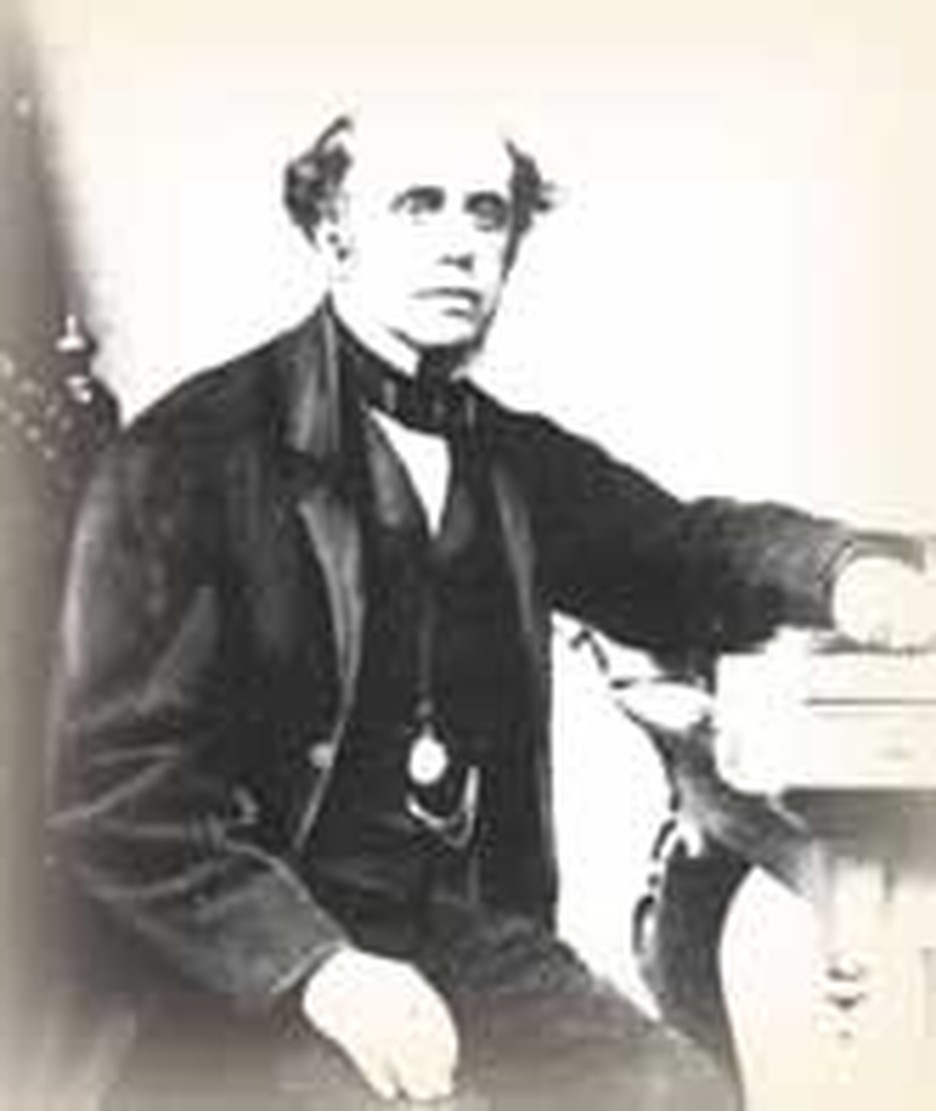
70 tickets at a shilling apiece! What if he could take a cut of that! Thomas Cook saw an opportunity when it smacked him in the face. And one smacked him on this day, July 5, 1841. The Baptist minister had just organized transportation and entertainment for a temperance rally (that is, a gathering to fight alcoholism). Earlier, while traveling on business, the thought had flashed through his mind, "What a glorious thing it would be if the newly developed power of the railway and locomotives could be made subservient to the cause of temperance." And, of course it could. He got the local temperance board to allow him to hire a special train to haul 600 passengers from Leicester to a meeting in Loughborough.
Package tours would soon become a big international business. Thomas Cook blazed the trail when he printed flyers and sold shilling tickets for that outing.
Born in Derbyshire, England, he was forced by the death of his father to drop out of school at ten to go to work. He was just twenty when he became a Bible reader and homeland missionary with the Baptists. As a traveling evangelist, he had to learn skills of crowd control and persuasion which served him well as a tour manager. He was working as a printer in Leicester when he arranged the temperance train.
By 1845 Cook was running similar tours as a business. He negotiated a deal with the railroad under which they gave him a commission for every ticket he sold. All he had to do was provide the passengers.
Cook did. He considered it part of his temperance ministry, reasoning that the lower and middle classes would be far better off if they saved their money for trips rather than spending it on booze.
The business really took off when Cook arranged package tours for the Great Exhibition in London that took place in 1851. For five shillings, a person could travel to the exhibition, eat and sleep in London. The tours proved a smashing success. He arranged over 165,000 tickets from Yorkshire alone.
Cook left nothing to chance. He even set up a system of clubs to help his clients save money for these trips.
After that, Cook arranged similar tours to the Paris Exhibition. He promised his clients a full package of services--help getting passports, language guides, transportation, food, lodging and traveler's checks.
Soon tourists to Europe could travel a pre-arranged circuit over rails on a Cook plan. He branched out to the rest of the world. In 1884, his company arranged to transport a force of 18,000 men up the Nile to relieve General Charles Gordon.
As is so often true, when we take a closer look at history, we find that one man trying to carry out a Christian work improved conditions for everyone. A whole industry exists, thanks in large measure to Thomas Cook and his temperance vision.
Bibliography:
- 50 great pioneers of American industry; the stories of Rockefeller, Swift, Edison, Woolworth, Squibb, Proctor, Sears, Otis, Singer, Carrier, and 40 other business leaders and courageous innovators whose activities founded major industries and shaped today's economy. Maplewood, New Jersey: C.S. Hammond, 1964.
- Brendon, Piers. Thomas Cook: 150 years of popular
tourism.
London: Secker & Warburg, 1991. - Swinglehurst, Edmund. Cook's Tours : the story of popular travel. Poole, Dorset: Blandford Press, 1982.
- Swinglehurst, Edmund. The Romantic Journey; the story of Thomas Cook and Victorian travel. London: Pica Editions, 1974.
Last updated May, 2007.


